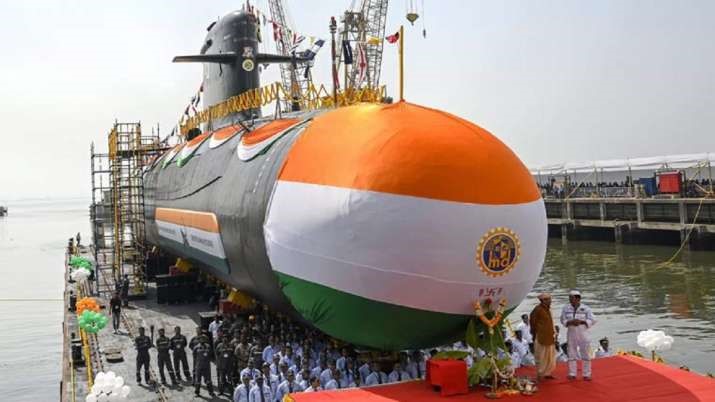
French defence major opts out of Make in India ₹43,000-crore submarine project

In a major setback to Make in India initiatives, French defence major Naval Group has pulled out of the P-75 India (I) project, under which six mega stealth submarines were to be built in India for the Indian Navy. The company has withdrawn from the project on the eve of Prime Minister Narendra Modi’s visit to France on May 4.
The Naval Group is exiting the project because it cannot satisfy the conditions of the Request for Proposal (RFP), said a statement issued by the company.
The Naval Group is one of the shortlisted international players for the ₹43,000-crore project, to be executed under India’s strategic partnership model. Under this model, an international Original Equipment Manufacturer (OEM) would partner with an Indian company to manufacture submarines in India, and share the technology with them.
The other four companies, who were part of the bidding, included Russia’s Rosoboronexport, Germany’s Thyssenkrupp, Spain’s Navantia and South Korea’s Daewoo. These five shortlisted foreign OEMs had to partner with one of the shortlisted Indian Strategic Partners (SP), Mazagon Dock Shipbuilders Limited (MDL) or Larsen & Toubro (L&T), to manufacture these six submarines in India.
This strategic partnership model is aimed at giving a major boost to the indigenous design and construction capability of submarines in India, in addition to bringing in the latest submarine design and technologies.
Also read: India clears ₹43K crore project to build 6 mega stealth submarines
According to a report in a national daily, the three European and Russian companies too have now pulled out of this project but there has been no official statement on this matter.
The ministry of Defence had in April 2021 cleared the way for the construction of six new stealth submarines for the Indian Navy amid the challenges being faced by China in the Indian Ocean.
Naval Group manufacturing six Scorpene class submarines
Meanwhile, the Naval Group is already making six Scorpène-class submarines in collaboration with Mazagoan Dockyard shipbuilding Limited (MDL) in India. Of these, four, the Kalvari-class submarines, have joined the Navy, the fifth is under sea-trial and the sixth Vagsheer was launched earlier this month.
Laurent Videau, Country and Managing Director, Naval Group India issued a statement on April 30 in which he said “the present RFP requires that the fuel cell AIP be sea proven, which is not the case for us yet since the French Navy does not use such a propulsion system.”
The Air-independent Propulsion or AIP technology is more enduring, and has the ability to remain submerged longer, and is less noisy than the diesel-electric propulsion system. The key advantage being it will not be required to get out of the sea again and again like a diesel-electric submarine.
Also said: As INS Vikrant takes rebirth, focus shifts to India’s ‘blue water’ capability
Videau said the Naval Group “has always been ready to offer the best in class and adapted solution for the Indian Navy’s P75(I) project, being fully in line with the AatmaNirbhar Bharat principle”. He said the Group will strengthen their existing commitments and their focus and efforts will be to continue their collaboration with the Indian industry to realise the vision of the Indian government. And, they were willing to support the Indian navy in other projects such as maintenance, high tech tools, indigenous AIP, incremental improvements in Scorpene designed submarine, HWT, larger ships etc.), said Videau.
Naval Group’s exit from the project has been announced on the eve of PM Modi’s meeting with the re-elected President Emmanuel Macron on May 4. In his departure statement, PM Modi had however said that this visit will “reaffirm the close friendship between the two countries” and “will also give us the opportunity to set the tone of the next phase of the India-France Strategic Partnership”.
India is now concerned about the P75 (1) project since the European and Russian contenders seem to have reportedly pulled out of the project, said reports. While Naval Group said the issue of demonstrating sea-proven AIP fuel cells was the reason for its exit, newspaper reports suggested that they were not comfortable about sharing their expertise and niche technology with Indian partners.

